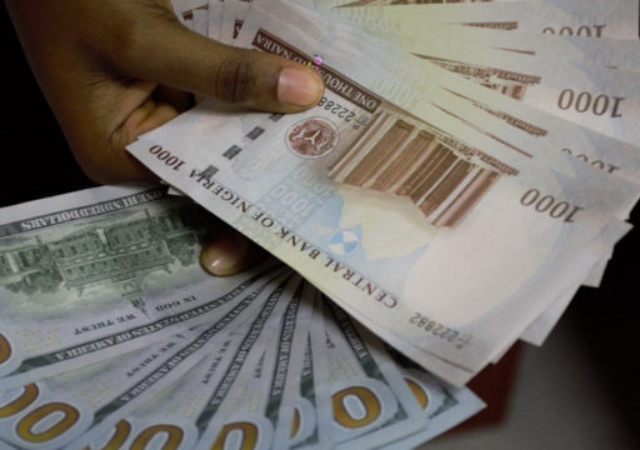

With respect to the official Investor and Exporter FX window, the naira ended the week at N927.19/$.
From the N794.89/$ it closed the week of November 24, 2023, this represented a 16.64 percent decrease, citing statistics from the FMDQ Securities Exchange. Additionally, during the reviewed time, the market’s monetary turnover grew from $75.82 million to $110.14 million.
The naira started the day’s trading at N815.00/$ on Friday and went on to reach a high of N1160/$ and a low of N701/$. At N927.19/$, it finally closed trading.
The naira reached a high of N1136/$ and a low of N700.00/$ on Friday of last week. Even if the Central Bank of Nigeria is making an effort to clear a backlog of
Olayemi Cardoso, the governor of the apex bank, recently said that public debt growth and fiscal deficits are putting more strain on external reserves and causing exchange rate volatility.
The governor made remarks at the 58th Annual Bankers’ Dinner and Grand Finale of the Chartered Institute of Bankers of Nigeria, marking the Institute’s 60th anniversary.
, “We have already witnessed improvements in FX market liquidity in recent weeks, as the market responded positively to tranche payments which have been made to 31 banks to clear the backlog of FX forward obligations.
“We have been subjecting these payments to detailed verification to ensure only valid transactions are honored. In a properly functioning market, it is reasonable to expect significant FX liquidity, with daily trade potentially exceeding $1.0bn. We envision that, with discipline and focused commitment, foreign exchange reserves can be rebuilt to comparable levels with similar economies.”
He added that one of the bank’s monetary policies aims is to achieve price stability and the stabilization of the exchange rate of the naira. Cardoso highlighted that the proper functioning of domestic and foreign currency markets, clear, transparent, and harmonised rules governing market operations are essential.
He declared, “New foreign exchange guidelines and legislation will be developed, and extensive consultations will be conducted with banks and FX market operators before implementing any new requirements.”
The Economist Group’s research and analytical branch, the Economic Intelligence Unit, disagrees, saying the CBN lacks the necessary force to clear the backlog of foreign exchange requests.
According to a recent report, “In Nigeria, an unsupportive monetary policy implies that the naira will remain under pressure, while the central bank lacks the firepower to adequately supply the market or clear a backlog of foreign exchange orders, which will keep foreign investors unnerved. High inflation and a continued spread with the parallel market will leave the exchange rate regime unstable and result in periodic devaluations.”

Leave a Reply